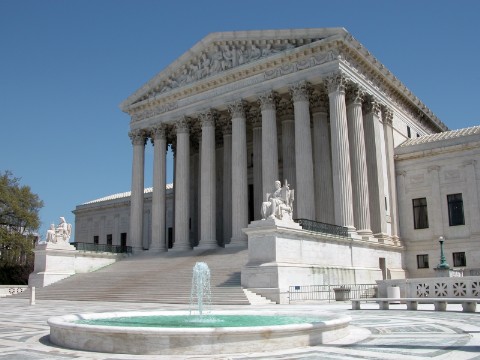 Cross-posted at WLF’s Forbes.com contributor page
Cross-posted at WLF’s Forbes.com contributor page
In its unanimous Mississippi ex rel. Hood v. AU Optronics ruling, the Supreme Court on Tuesday refused to interpret the Class Action Fairness Act (CAFA) so as to allow the “mass action” removal of a parens patriae suit in which the State of Mississippi was the only named plaintiff. The decision marks only the second time that the high court has considered the 2005 statute, which Congress enacted to expand a defendant’s ability to remove to federal court a class action that did not satisfy the traditional requirements of diversity jurisdiction. (Last term, a unanimous Court in Standard Fire Insurance Co. v. Knowles ruled in favor of removal in a case where the class representative attempted to avoid CAFA jurisdiction by stipulating to damages below the threshold amount in controversy).
Utilizing a “real-parties-in-interest” analysis, the U.S. Court of Appeals for the Fifth Circuit had agreed with the district court that the case constituted a “mass action” under CAFA. But on the question of the applicability of CAFA’s “general public” exception, the appeals court reversed the district court, which had remanded the case back to state court on the basis that it was “asserted on behalf of the general public (and not on behalf of individual claimants or members of a purported class)” under 28 U.S.C §1332(d)(11)(B)(ii)(III). Oddly, the Supreme Court didn’t bother weighing in on CAFA’s “general public” exception, holding instead that the suit failed even to meet the basic definition of a “mass action” because it did not involve 100 or more named plaintiffs. The Court rejected the lower courts’ “real-parties-in-interest” approach in favor of a narrow reading of the statutory language.
As a result, state attorneys-general and their trial bar friends are now free to avoid federal court altogether by simply running their class and mass actions through an AG’s office as a parens patriae suit. The trial lawyers will still receive their big contingent-fee awards, and they can continue to send AGs their out-of-state campaign contributions. According to a recent report, for example, the Mississippi AG’s “plaintiffs’ firm contributors were all out of state, and they made no contributions to any other candidates for statewide office in Mississippi.” In only two instances where contingent-fee law firms represented Mississippi in securities fraud class actions did the firms not make a previous contribution to the AG’s campaign. They did so subsequently, however, according to the report.
If this staggering conflict of interest is ever to be reined in, the Court has left it up to Congress to do so. That’s a shame, inasmuch as the Supreme Court should take a greater interest in cleaning up practices that treat courtrooms like cash registers and corrode the integrity of the judicial process.
